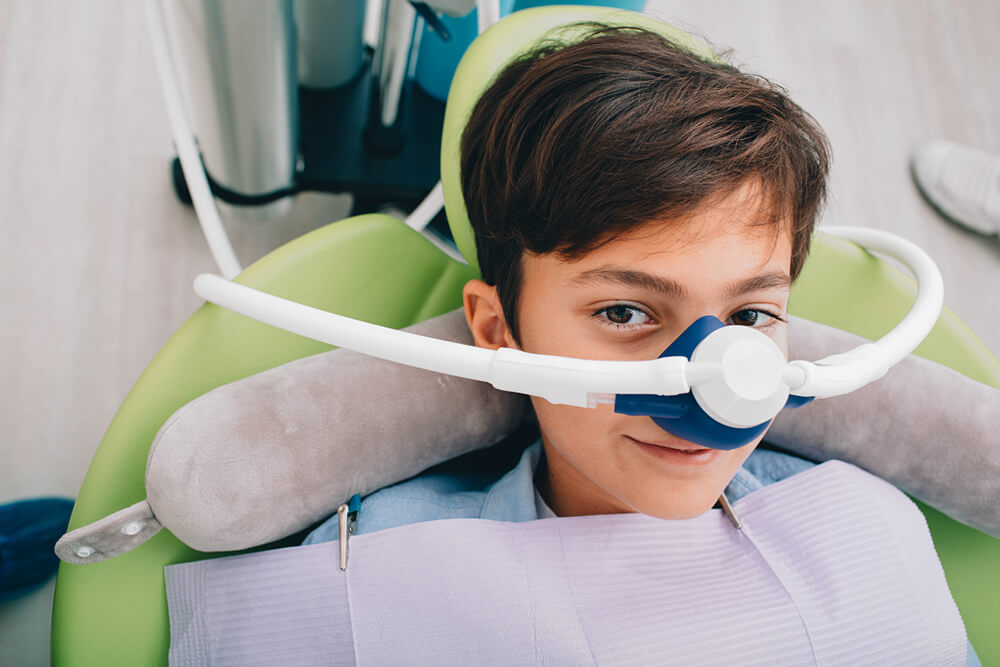Although many people associate pediatric dentistry with infants and young children, pediatric dentists see their fair share of adolescents. As these children begin to develop into adults, many things suddenly start to change. Among all these changes, your child’s oral health needs will change as well. In fact, there are various oral health concerns that primarily affect adolescents that you should be aware of. Here are some of the most common adolescent oral health concerns:
Vending Machines

Many schools are equipped with vending machines that allow your child to purchase cheap, fast snacks. Unfortunately, however, most of the food in vending machines tends to be high in sugar, while the beverages tend to be sodas that are high in both sugar and acid content. Adolescents that frequently utilize vending machines for their food and drink selection are at a higher risk for developing tooth decay and gum disease. For this reason, it is important to discuss the importance of diet with your child to help them make healthier choices. Regular dental cleanings should also be performed every six months, especially if your child regularly consumes foods and beverages that are high in sugar.
Smoking (Tobacco/Cannabis)
During adolescence, some children may start to experiment with smoking tobacco products and/or cannabis. Smoking tobacco products can cause a variety of overall and oral health problems and is not recommended for anyone, regardless of age. Although cannabis does not contain the same harmful ingredients found in tobacco products, a study published in JAMA found that adolescents who smoked cannabis were at a slightly higher risk of developing periodontal disease.
Pediatric Periodontal Disease
Gum disease, more formally known as periodontal disease, is prevalent in children and adolescents. However, destructive forms of periodontal disease are more likely to affect adolescents between the ages of 12-17. In fact, generalized aggressive periodontitis (GAgP) is considered to be a disease of adolescents and young adults. GAgP is characterized by heavy plaque and tartar accumulations, and periodontal inflammation that affects the entire dentition. Since the successful treatment of GAgP depends on early diagnosis, regular dental exams and cleanings are recommended.
Oral Habits

There are certain oral habits that can be detrimental to your child’s oral health. Oftentimes, the first few behaviors that come to mind are finger or pacifier sucking. In adolescents, however, the most common detrimental oral habits are nail-biting and bruxism. Nail biting is usually brought on by anxiety. In addition to damaging the nails, nail biting can also cause the front teeth to chip or crack. The risk of temporomandibular joint disorder (TMD) is also higher in those who bite their nails because the act of biting one’s nails requires that the jaw be in an advanced position for an extended amount of time. Bruxism is another damaging oral habit that is classified by the grinding or clenching together of one’s teeth. Bruxism is usually brought on by stress and occurs at night while your child is sleeping. Because of this, you may not even know that your child has bruxism until their dentist diagnoses it.
Oral Piercings
Oral piercings can be found on the lips, cheeks, tongue, or uvula. The most common location is the tongue, followed by the lips. The uvula is one of the rarest places for an oral piercing since it is so hard to get to. During adolescence, your child is establishing their identity and may choose to do so by getting an oral piercing. Unfortunately, the American Academy of Pediatric Dentistry opposes oral piercings because of their negative oral health effects. For starters, oral piercings are more likely to cause infections compared to other piercings, since they are located in the mouth, which contains thousands of bacteria. Not only that, but oral piercing has been found to damage the teeth, injure the gums, damage dental fillings, and lead to sensitive teeth.
Teeth Bleaching
Teeth whitening or bleaching is becoming increasingly popular. Although teeth whitening procedures are considered to be safe, whitening products can potentially damage the teeth and gums when not applied properly. For this reason, it is recommended by the American Academy of Pediatric Dentistry to consult with your child’s dentist on the best way to safely whiten their teeth. Generally speaking, however, teeth whitening is not recommended for children under the age of 12-14 who still have primary teeth and should only be used on adolescents that have all their permanent teeth.
Sports-Related Orofacial Injuries

Another oral health condition that can have a drastic impact on your adolescent’s oral health are sports-related orofacial injuries. Falls, collisions, or making forceful contact with sports-related equipment can all result in injuries to the teeth, gums, and surrounding structures. The most common structures affected by sports injuries include the upper lip, maxilla, and upper incisors. Having your adolescent child wear a sports mouthguard while playing sports can prevent these injuries from occurring since a mouthguard will cover and protect these structures. Although mouthguards are usually required for high contact sports such as football, lacrosse, and ice hockey, they are not always required for other sports. Nevertheless, wearing a mouthguard during sports play is highly recommended.
Pregnancy
Adolescent pregnancies can happen and require particular oral health care. In fact, the American Academy of Pediatric Dentistry notes that around 900,000 teenages become pregnant every year. Since there are a variety of changes in the mouth associated with pregnancy, pregnant adolescents have an increased risk of developing periodontitis. In some cases, periodontitis has been found to contribute to low birth weight, preeclampsia, and premature birth. As such regular dental care during adolescent pregnancy is strongly recommended for the health of the baby and mother.
While this list provides a basic overview of the various oral health considerations for adolescents, speaking with your child’s dentist can provide additional information. Every adolescent is different and your child may have specific oral health needs that their dentist can identify and manage as part of their regular dental exams and cleanings. Nevertheless, being aware of the most common oral health conditions and concerns found in adolescents can help you, as the parent, to better manage your child’s oral health and treatment.






